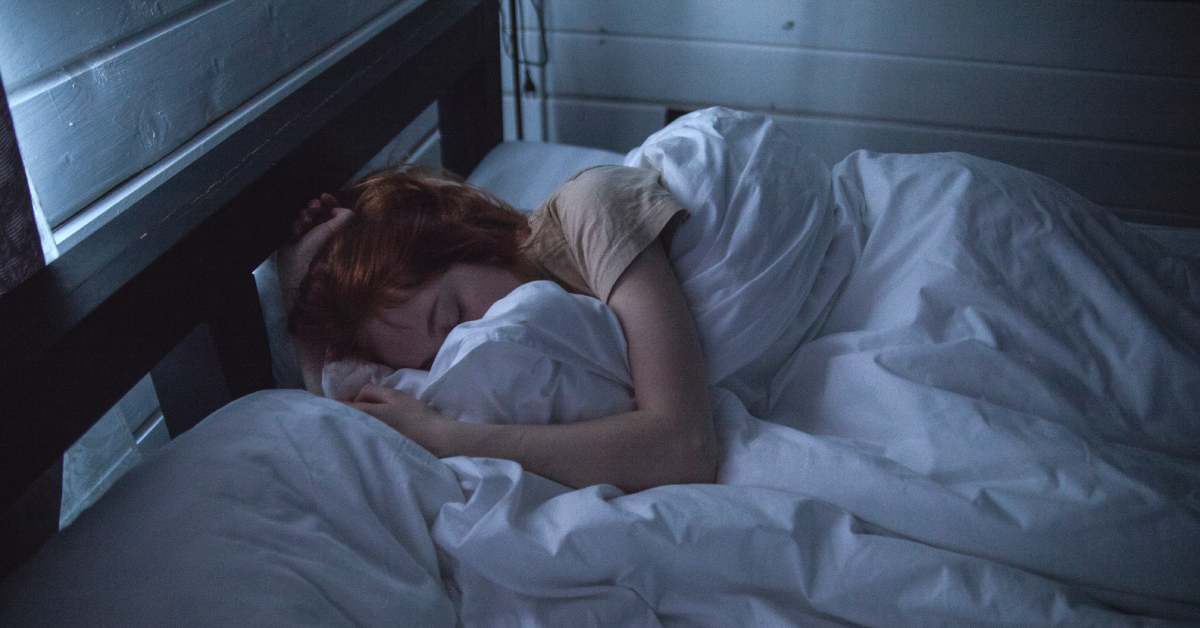
Getting enough water every day is important to your wellbeing and necessary for your organ functions. In the Journal of Biological Chemistry, the human adult body is composed of 60% water. Your brain, kidneys, heart and lungs need around 80% of water to function, and your skin needs to be composed of 75% water to maintain its elasticity. As your breathing, digestion, and waste removal depend on your constant rehydration, it is no wonder that you feel lethargic when you're thirsty. Many experts also go as far as saying that you need water more than food if you're lost in the wilderness.
How Hydration Affects the Body
You may have experienced going through an entire afternoon and forgetting to drink water. It may have been going through a hectic day at work filled with meetings and countless emails. Or it may have been running errands for your family that you forgot to have a glass of water. During those times, you might have felt worn down. In less dire circumstances, you might experience thirst, tiredness and dry skin. However, this can progress to fainting, confusion and increased heartbeat.
According to a study conducted by Cision, 9 out of 10 Brits were not drinking enough water despite last 2020's severe heatwave. This dehydration problem stems from people's misconception of what thirst is supposed to feel like. Most of the time, you may think that the pains you feel are not related to your water intake. In addition, it is not only important to stay hydrated throughout the day but also at night.
The relationship between Hydration and Sleep
You might ask yourself: "Is it alright to drink water before bed?" The answer here is not as straightforward as it seems. After all, your body's needs are different from the person seated next to you. While many experts recommend that you drink 8 to 10 glasses of water every day, there will be days where you will feel thirstier than usual. Some people drink a glass of water or warm tea before bed to stay hydrated as they sleep. All of this will depend on your daily lifestyle.
In Ginger Hultin's Anti-Inflammatory Diet Meal Prep, she writes that certain age groups are more at risk of dehydration than others. Children, pregnant women and older adults are in danger of dehydration because they have a lower water volume capacity in their bodies. Their risk for dehydration only worsens when they are sick with fever, vomiting or diarrhea. For pregnant women, this can manifest in the form of severe morning sickness. When sickness keeps you awake at night, too little sleep may also dehydrate you. Being mindful of your hydration levels will help you address your needs right away.
When people go to sleep, they can lose around 500 grams of water through breathing, sweating, and even getting up to urinate in the middle of the night. You may lose more or less depending also on your sleep environment. Normally, a warmer and more humid room may cause your body to sweat to release heat. A colder bedroom may cause your blood to circulate at a higher frequency, causing you to wake up in a sleepy stupor with the need to urinate.
Let's go through the advantages and disadvantages of drinking water before bed to help you decide.
Pros:
- Detoxifies and Relaxes Body
Water plays a key role in transporting waste outside of the body. The liver and kidneys need to flush away all the toxins from your organs to prevent your body from absorbing them. When you become dehydrated, your body will redistribute liquid from your colon and intestines. This explains why your digestive and excretory systems have a more difficult time functioning when you haven't drunk enough water.
When you drink water before bed, you are aiding your body's detoxification and digestion. We recommend drinking warm water to increase your blood circulation, break down waste more effectively and encourage sweat output. While sweating may cause you to lose some fluid as you are sleeping, it will also unclog your pores of salts and toxins and clean your skin cells. If you are experiencing pain, warm water can also relieve muscle pain or stomach cramps. Drinking water is also a great way to plump up your skin and prevent it from drying through the night. When this is paired with an electric blanket with 4D Dynamic Warmth Flow technology, your body can properly cleanse out toxins through your pores without feeling stuffy at night.
Some people already struggle with drinking enough water in the first place. If you are one of them and think that water is too bland, we recommend adding a slice of lemon to your water. Not only will you get a tangy flavour to your water, but you are also getting Vitamin C from the lemon.
Having a glass of warm water can also help expand your blood vessels and improve your blood circulation. As your core temperature starts to warm up, your muscles can relax more, and your brain can begin to ease into sleep.
- Improves Mood
According to experts, about 1.5% loss of fluid can already cause changes to your mood. The fatigue, anxiety, headaches and lack of motivation can sour your disposition for the day. According to a Cambridge study, both men and women experience anxiety, tension and depression while they are dehydrated. Day-to-day activities are more challenging to accomplish when lacking fluids in their system. When you're feeling confused and irritable, you might be thirsty.
By the time your throat feels dry, your body will have already lost up to 2% of body fluids. This shows that your thirst may not be the best way to tell if you need a drink. The first symptom of dehydration is a decreased urine production or a darker urine colour. You will know if you have healthy hydration levels if your urine is very light in colour. Making sure that you drink enough water before bed can improve your disposition and can help you fall asleep in peace.
While there is no correlation between hydration and sleep inertia, your hydration will affect your circadian rhythm. When you're about to go to bed, your kidneys intentionally fill up your bladder so that your sleep won't be interrupted by the sudden need to urinate. And just before you wake up, your kidney will also follow your circadian rhythm and release fluid into your bladder so that your hydration levels remain balanced throughout the night. In contrast, waking up dehydrated can make your mouth feel ashen and dry and make you feel grumpy.
If you're not used to drinking as much water as you need, we recommend setting a daily goal for yourself and using your phone or computer to remind you when it's time to drink. Studies also show that drinking caffeinated or alcoholic beverages at night, a few hours before you sleep, can be detrimental to your sleep cycle. These drinks are diuretics and can wake you up at the most inconvenient times and negatively affect your hydration levels.
- Prevents Headaches
Tension headaches happen when your neck and scalp muscles tense up as a response to a stressor. However, people may sometimes confuse it with a dehydration headache. In one study, researchers claim that 9 out of 10 adults will experience at least one headache at some point in their life. With the different kinds of headaches, a dehydration headache has its cure.
As you go through your daily activities, you sweat and urinate. When this happens, the severity of your headache will depend on how much you replenish your body's water composition compared to how much it has lost. As most of your brain is composed of water, it comes as no surprise that fluid loss can cause your brain to temporarily shrink or contract. The movement of your brain pulling away from your skull is what causes you pain.
To prevent this from happening before bedtime, we recommend drinking more water or sports drinks can replace the electrolytes you lost during your activity. There are also fluid-rich foods like cucumbers, watermelons, and apples that have high water content and vitamins. However, we want you to avoid overdrinking. Thirsty people tend to drink large volumes of water all at once. We recommend spreading out your liquid intake throughout the day to keep your body hydrated, especially when you're exposed to hot weather or engaged in strenuous activities.
If you're also feeling unwell, it is best to avoid or reduce physically exhausting events. Illness and increased body heat make you lose more water and only increase your risk for dehydration headaches.
- Aids in Weight Loss
One easy way to control your weight is to watch your fluid intake. Many studies have concluded that drinking water can boost your metabolism and help you avoid constipation. As water moves through your stomach and intestines, your organs will have an easier time eliminating waste. Warm water is especially effective in activating your digestive system before you enjoy a meal. This was all confirmed in a 2016 study that concluded that warm water aids your intestines and also help with post-surgery treatment.
You might think that not drinking water can help you lose weight but intentional dehydration puts you into survival mode. It will hold onto every last drop of water, resulting in a bloated and puffy appearance. We recommend having a healthy drinking schedule where you're not withholding water from your body. Extended periods of dehydration can be detrimental to your brain and kidneys.
If you tend to eat more than you need, drinking water can also suppress your appetite for solid food. Many people might think that their stomach grumbles only when they are hungry. However, it is a good practice to drink a glass of water instead of immediately satiating your hunger. Sometimes, your stomach is looking for water instead of food.
Instead of drinking too much water before bed, we recommend that you drink water throughout the day to keep your metabolism active. When you're dehydrated, your body will not have enough energy to burn calories and process food and drinking too much water in one go can only worsen the dehydration symptoms you're already feeling.
- Regulates Temperature
As mentioned earlier, water plays an important role in your internal body clock. When evening comes, your body cools down to a comfortable temperature to help you sleep. Anything that disrupts this, such as heavy exercises, large meals, caffeine intake and dehydration, can make it difficult for you to fall asleep. If you're properly hydrated, then your body can reduce its core temperature and eventually keep its temperature stable as you're drifting to sleep.
Cons:
- Nocturia
The main disadvantage of drinking water before bed is that you're more likely to wake up in the middle of the night. This can disrupt your sleeping pattern and affect your overall health. Many different sources would agree that interrupted and fragmented sleep can lead you to feel extra tired in the morning. If you're not able to deal with this properly, it can soon result in sleep deprivation.
People who are more at risk of developing nocturia are those diagnosed with obesity, heart diseases, diabetes, depression and bladder infections.
However, nocturia can be easily prevented by following a good sleep and hydration schedule. When you have an active bladder, a good way to reorient it is to abstain from drinking fluids three hours before bedtime. We also recommend urinating before you sleep so that you can go to sleep with fewer disturbances.
Elevating your legs or wearing compression stockings can also prevent your body from reabsorbing water from your legs when you lie down. You may also put your legs up a few hours before bed so that this process can take place before you fall asleep.
The Importance of a Sleep Ritual
Aside from taking care that you're hydrated, your sleep environment and ritual are also important factors. Whether your room is too warm or too dry can determine how well you sleep at night. The same goes if you sleep in a noisy environment or a quiet one. Your rest is also dependent on the activities that you do during the day, hence the need for a sleep ritual.
We recommend keeping all blue light electronics out of your bedroom. Gadgets like your television and tablets may delay your sleepiness even when you are tired. If you want to sleep with a source of light, we recommend getting red-coloured nightlights to prevent your brain from waking you up when it detects a light source. Exercise regularly during the mornings or afternoons so that your body will crave rest at the end of the day. However, we recommend avoiding intense exercise routines two hours before bedtime as this will only increase your core temperature and your heart rate.
Having a consistent sleeping and waking time can improve your sleep hygiene and allow your circadian rhythm to have a stable schedule. When you wake up and still feel sleepy, we encourage you to play loud music or let the light in your room. Most of the time, you're experiencing symptoms of sleep inertia where you are technically fully rested but you still feel sleepy. Instead of sleeping in and disrupting your normal sleeping schedule, avoid staying in bed for too long. When you combine all of these habits with drinking water regularly, you are helping your body stay healthy for a long time.
Sleep better with the perfect sleeping environment!
If you are looking for ways to help you sleep better, we've compiled the perfect guide for you. Download our FREE ebook "How to create the perfect sleeping environment" and turn your bedroom into a comfortable sleep sanctuary!
Click on the link below to download this free ebook now:
References:
https://today.uconn.edu/2012/02/even-mild-dehydration-can-alter-mood/
https://www.today.com/health/are-you-dehydrated-9-symptoms-lookout-t93151
https://pubmed.ncbi.nlm.nih.gov/27684632/
https://www.healthline.com/health/benefits-of-drinking-hot-water#better-digestion
https://www.medicalnewstoday.com/articles/317511#What-is-a-dehydration-headache
https://www.healthline.com/health/how-to-tell-if-youre-dehydrated#14-symptoms
https://www.everydayhealth.com/dehydration/the-truth-about-hydration-myths-and-facts/
https://www.bda.uk.com/resource/the-importance-of-hydration.html
https://www.tasteofhome.com/article/drinking-water-before-bed/
https://www.medicalnewstoday.com/articles/321250#pros-and-cons
https://www.dreams.co.uk/sleep-matters-club/drinking-water-before-bed/
https://laylasleep.com/drinking-water-before-bed/
https://www.sleepadvisor.org/drinking-water-before-bed/
https://www.healthline.com/health/drinking-water-before-bed#drinking-before-bed


.png?width=512&name=united-kingdom%20(1).png)

